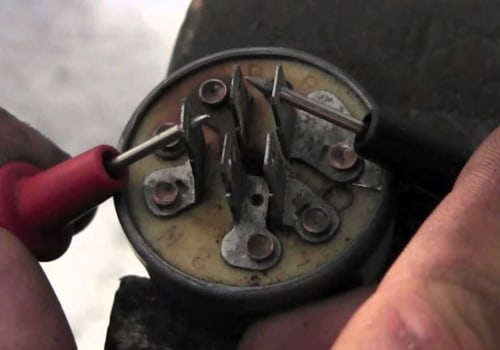Dirty AC Filter Symptoms
One example of a common issue in air conditioning systems is the presence of a dirty AC filter. This article aims to explore the symptoms associated with this problem. By examining reduced airflow, increased energy consumption, uneven cooling or heating, poor indoor air quality, frequent breakdowns or malfunctions, ice formation on the evaporator coil, and unpleasant odors from the air vents, we can gain insight into the various ways a dirty AC filter symptoms impact system performance.
Reduced Air Flow
Reduced air flow is a common symptom associated with a dirty air conditioning filter. The purpose of an air conditioning filter is to remove dust, pollen, and other airborne particles from the circulating air. Over time, these filters can become clogged with debris, reducing their efficiency and causing a decrease in the amount of air that can pass through them.
Regular air filter maintenance is essential to prevent reduced airflow and maintain optimal performance of an air conditioning system. This involves inspecting the filter regularly and cleaning or replacing it as necessary. Neglecting this maintenance can lead to various issues, including reduced airflow.
When an air conditioning filter becomes dirty and clogged, it obstructs the passage of air through the system. As a result, less cool or warm air reaches the desired indoor space. This reduction in airflow makes the system work harder to achieve the desired temperature, leading to increased energy consumption and potentially higher utility bills.
To remedy reduced airflow caused by a dirty filter, performing timely replacements is crucial. Air filter replacement should be done according to manufacturer recommendations or more frequently if needed depending on environmental conditions such as high levels of dust or pet dander.
Increased Energy Consumption
Higher electricity bills can result from increased energy consumption as a direct consequence of a variety of factors within the HVAC system. An overworked HVAC system may also contribute to these higher bills due to excessive strain placed on the equipment. Additionally, poor indoor air quality can be a byproduct of increased energy usage in HVAC systems, leading to potential health issues for occupants.
Higher Electricity Bills
The presence of a dirty AC filter can result in an increase in electricity consumption, leading to higher bills. When the AC filter becomes clogged with dust and debris, it restricts the airflow and reduces the system's efficiency. As a result, the air conditioner has to work harder and longer to cool or heat the space, resulting in higher electricity usage. This increased energy consumption not only affects the environment but also impacts household utility bills. The additional strain on the system due to a dirty filter can lead to increased utility bills as more energy is required to maintain a comfortable indoor temperature. Regular maintenance and cleaning of AC filters are essential to ensure optimal performance and avoid unnecessary expenses associated with higher electricity usage and increased utility bills.
Overworked HVAC System
An overworked HVAC system may lead to decreased efficiency and increased energy consumption. When an HVAC system is overworked, it can struggle to meet the desired temperature requirements, which leads to a decrease in its overall efficiency. This inefficiency can result in higher energy consumption and subsequently increased electricity bills for the user. To prevent an HVAC system from becoming overworked, regular maintenance is crucial. Some maintenance tips include regularly cleaning or replacing air filters, ensuring proper insulation and sealing of ducts, and scheduling routine inspections by professionals. These measures help maintain the optimal performance of the HVAC system, allowing it to operate efficiently without being overburdened. By following these maintenance tips, users can avoid excessive strain on their HVAC systems while also reducing energy consumption and promoting environmental sustainability.
Poor Indoor Air Quality
Poor indoor air quality can have negative effects on the health and well-being of individuals residing in the space. Indoor pollutants, such as dust mites, pet dander, mold spores, and volatile organic compounds (VOCs), are common contributors to poor indoor air quality. Exposure to these indoor pollutants can lead to a range of health risks, including respiratory issues such as asthma and allergies. Dust mites and pet dander can trigger allergic reactions and worsen existing respiratory conditions. Mold spores can cause respiratory infections and exacerbate asthma symptoms. VOCs emitted from household products and building materials can irritate the eyes, nose, and throat, as well as contribute to long-term health problems like cancer. Therefore, it is crucial to address indoor air quality concerns by implementing proper ventilation systems and regularly cleaning or replacing filters to reduce exposure to these harmful pollutants.
Uneven Cooling or Heating
Uneven cooling or heating can be a symptom of a dirty AC filter. The efficiency of an air conditioning system is closely linked to its ability to regulate temperatures evenly throughout a space. When an AC filter becomes clogged with dust, dirt, and other particles, it restricts the airflow, leading to reduced energy efficiency and compromised temperature regulation.
A dirty AC filter impedes the flow of air through the system, resulting in uneven distribution of cooled or heated air. This can lead to certain areas within a room or building feeling colder or hotter than others. As the filter becomes increasingly clogged over time, the restricted airflow forces the HVAC system to work harder to maintain desired temperatures. Consequently, this extra strain on the system not only reduces energy efficiency but also increases operational costs.
To ensure optimal performance and efficient temperature regulation, regular maintenance and cleaning of AC filters are essential. Routine replacement or cleaning schedules should be followed as recommended by manufacturers or HVAC professionals. By keeping filters clean and free from debris, homeowners and facility managers can maximize energy efficiency while enjoying consistent comfort levels throughout their living or working spaces.
Poor Indoor Air Quality
Indoor air quality can be negatively affected by factors such as inadequate ventilation and the presence of pollutants. Poor indoor air quality can have significant implications for human health, particularly when it comes to respiratory issues. The build-up of pollutants in enclosed spaces can lead to the development or exacerbation of respiratory conditions such as asthma, allergies, and chronic obstructive pulmonary disease (COPD). These pollutants include allergens like dust mites, pet dander, mold spores, and volatile organic compounds (VOCs) emitted from various household products.
One effective way to improve indoor air quality is through the use of air purifiers. Air purifiers are designed to remove contaminants from the air, trapping them in filters or neutralizing them through other means. HEPA filters are commonly used in air purifiers as they are highly efficient at capturing small particles such as pollen and fine dust. Some advanced models also incorporate activated carbon filters to adsorb odors and chemicals.
Research has shown that using air purifiers can help reduce airborne allergens and improve overall indoor air quality. This can significantly benefit individuals with respiratory issues by reducing their exposure to triggers that may worsen their symptoms. However, it is important to note that while air purifiers can help mitigate indoor air pollution, they should not replace proper ventilation practices such as opening windows regularly and maintaining clean HVAC systems.
Frequent Breakdowns or Malfunctions
Addressing these issues is crucial as they can have significant implications for both homeowners and commercial building owners alike. By understanding the causes and consequences of frequent breakdowns and malfunctions, strategies can be developed to mitigate their effects and ensure optimal functioning of air conditioning systems.
Increased Repair Costs
Increased repair costs can be a consequence of neglecting to clean or replace a dirty AC filter. When the air conditioning filter becomes clogged with dust, dirt, and other particles, the airflow is restricted. This restriction leads to decreased efficiency in the cooling process as it hampers the proper circulation of air. As a result, the system has to work harder and longer to achieve the desired temperature, which puts additional strain on its components. Over time, this increased workload can cause various mechanical issues such as motor failure or compressor breakdown. Repairing these damages can be expensive and time-consuming. Therefore, regular maintenance and cleaning of the AC filter are crucial to prevent a decrease in efficiency and subsequent increase in repair costs associated with a neglected dirty filter.
Reduced System Efficiency
Dirty AC filters can lead to reduced system efficiency, resulting in decreased cooling capacity and overall performance. When the air filter becomes clogged with dirt, dust, and other contaminants, it restricts the airflow passing through it. This restriction causes the air conditioner to work harder to push air through the system, leading to increased energy consumption and reduced cooling efficiency. As a result, the system may struggle to maintain desired temperatures and take longer to cool down a room. Additionally, reduced airflow due to a dirty filter can cause ice buildup on the evaporator coil, further impairing cooling capacity. Regularly replacing or cleaning AC filters is crucial for maintaining optimal system performance and ensuring efficient cooling operations.
Poor Air Quality
The presence of airborne pollutants in indoor environments has been linked to a range of adverse health effects. Indoor air quality is influenced by various factors, including the presence of airborne pollutants such as particulate matter, volatile organic compounds (VOCs), and biological agents. These pollutants can originate from outdoor sources or be generated indoors through activities like cooking, smoking, and using certain cleaning products. When individuals are exposed to high levels of airborne pollutants over extended periods, it can lead to respiratory issues such as asthma exacerbation, allergic reactions, and increased susceptibility to respiratory infections. Vulnerable populations such as children, the elderly, and individuals with pre-existing respiratory conditions are particularly at risk. Therefore, maintaining good indoor air quality by minimizing the presence of airborne pollutants is crucial for protecting human health.
Ice Formation on the Evaporator Coil
Ice formation on the evaporator coil is a common symptom observed in HVAC systems with a clogged air filter. When an air filter becomes clogged, airflow through the system is restricted, leading to reduced heat transfer from the evaporator coil. As a result, the temperature of the coil drops below freezing point, causing moisture in the air to freeze and accumulate on its surface. This ice formation not only reduces the efficiency of the HVAC system but can also lead to further issues if left unaddressed.
To prevent ice formation on the evaporator coil and ensure optimal performance of HVAC systems, regular coil maintenance is essential. Coil maintenance involves cleaning or replacing dirty filters to maintain proper airflow and prevent debris buildup on the coil surface. Additionally, periodic inspections should be conducted to identify any signs of damage or blockages that could impede airflow and contribute to ice formation.
Properly maintaining the evaporator coil also extends its lifespan by preventing corrosion and reducing strain on other components of the HVAC system. Regular maintenance routines should include cleaning or replacing dirty filters as well as checking for any leaks or refrigerant issues that may affect overall system performance.
Unpleasant Odors From the Air Vents
Unpleasant odors emanating from the air vents can be indicative of mold or bacterial growth within the HVAC system. Mold growth is a common issue in HVAC systems and can lead to various health issues if not addressed promptly. These unpleasant odors are often caused by the accumulation of moisture in the system, providing an ideal environment for mold and bacteria to thrive.
One common mistake that homeowners make when dealing with these odors is using air fresheners to mask the smell. While air fresheners may temporarily improve the odor, they do not address the underlying issue of mold growth. In fact, using air fresheners can exacerbate the problem by introducing more chemicals into the indoor air.
To effectively eliminate unpleasant odors from air vents, it is crucial to address and remediate any potential mold or bacterial growth within the HVAC system. This involves inspecting and cleaning all components of the system, including ductwork, filters, and coils. Regular maintenance and cleaning can help prevent mold growth and ensure better indoor air quality.
Frequently Asked Questions
How Often Should I Clean or ReplACe My AC Filter?
Proper maintenance for optimal AC performance includes regular filter cleaning and replacement. Frequency depends on factors such as air quality, usage, and type of filter. Consult the manufacturer's guidelines or seek professional advice for specific recommendations.
Can a Dirty AC Filter Lead to Higher Utility Bills?
A dirty AC filter can impact energy consumption and system efficiency. By restricting airflow, a dirty filter causes the HVAC system to work harder, leading to increased energy usage and potentially higher utility bills.
Can a Dirty AC Filter Cause Health Problems?
Dirty AC filters can impact air quality and potentially cause allergies. It is important to consider the potential health risks associated with dirty AC filters, as they can contribute to poor indoor air quality.
What Are Some Common Signs of a Dirty AC Filter?
Common signs of a dirty AC filter include reduced airflow, increased energy consumption, poor indoor air quality, and potential damage to the HVAC system. Regular maintenance of AC filters is important to prevent these problems.
How Can I Prevent My AC Filter From Getting Dirty Quickly?
Ways to improve AC filter maintenance and extend the lifespan of your AC filter include regular cleaning or replacement, ensuring proper installation, using high-quality filters, and reducing indoor air pollutants.



